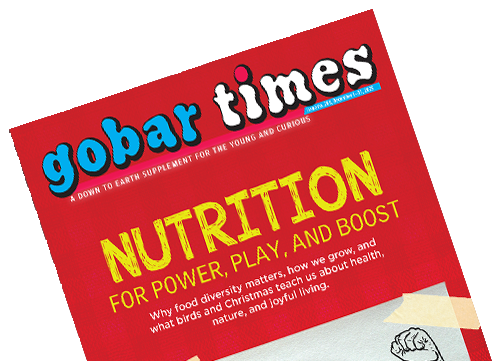
The Limca Book of Record holder, Rakesh Khatri, will offer an inspiring chitter-chatter on sparrow conservation.

Commemorating the Azadi ka Amrit Mahotsav with a brief tale of our peoples and environment from c. 1872–2022, spanning about 75 years before and after our tryst with destiny. ************************* 'Why was India lost?’ asked Mahatma Gandhi in his famous little book of philosophies, the Hind Swaraj, in 1909. Without any pun intended, he answered some lines later: ‘The English have not taken India; we have given it to them.’...

France passed a new law that mandates car advertisements to dissuade people from using more cars. This regulation is implemented with the aim of curbing global warming. French car commercials have to display messages encouraging alternate means of transport. For example, ‘Consider carpooling,’ ‘For day-to-day use, take public transportation,’ and ‘For short trips, opt for walking or cycling.’ This ruling will impact over all media, including print, TV, radio, and Internet...

Knock-knock, who’s there? The holy Brown Rock Chat. A holy who???... That’s how a timid bird perplexed me at 3:30am in the dark of dawn. It was February 2019 and I was calming the anxieties of my daughter, who was fearing her imminent exams. Persistently knocking my door—I hesitated to investigate any such visitor at an ungodly hour. So, I peeped out from an adjacent window to survey my doorway and was delightfully surprised to find a beautiful, winged creature. “Mama, look who’s come to wish me luck!" My doll whispered in ecstasy...

A look around any supermarket and one thing will be hard to miss: plastic. Every item small or big, from perishables to ones with a long shelf life is packed in plastic. Even the ones that have a covering of their own, say, oranges are needlessly packaged. The fruit is even peeled, kept on a delicate foam tray, and sealed with a plastic sheet. Apples are individually wrapped in comfortable cushions made of plastic. Gourds are packed in cling films. It’s almost as if humans think that their artificial packaging, which is wreaking havoc on the planet, is better than that of nature...

The World Water Woe is real. There is crisis everywhere because our water resources are limited. A lot of water is wasted when we use it carelessly. Therefore, we should conserve it by handling it judiciously. Watch this inspiring movie Drop by Drop featuring the little heroes of class 3, reminding us about the importance of saving water by following the right practices. These practices focus upon three simple ways of preserving water before, and not after, its consumption. For example...

Does food grow only in pristine farmlands of rural areas or is it available around us in cities as well? Let us try and forage for some food right here, in our neighbourhood parks. ******************************** It was a Sunday, therefore, a holiday and for that reason a day for some fun and exciting activity. Hence, Babbi was quickly getting ready to receive her friend Neenu and go play in the nearby park. Neenu’s mom would also come along as she was close friends with Babbi’s mom and the two of them often planned many engagements for their kids…

